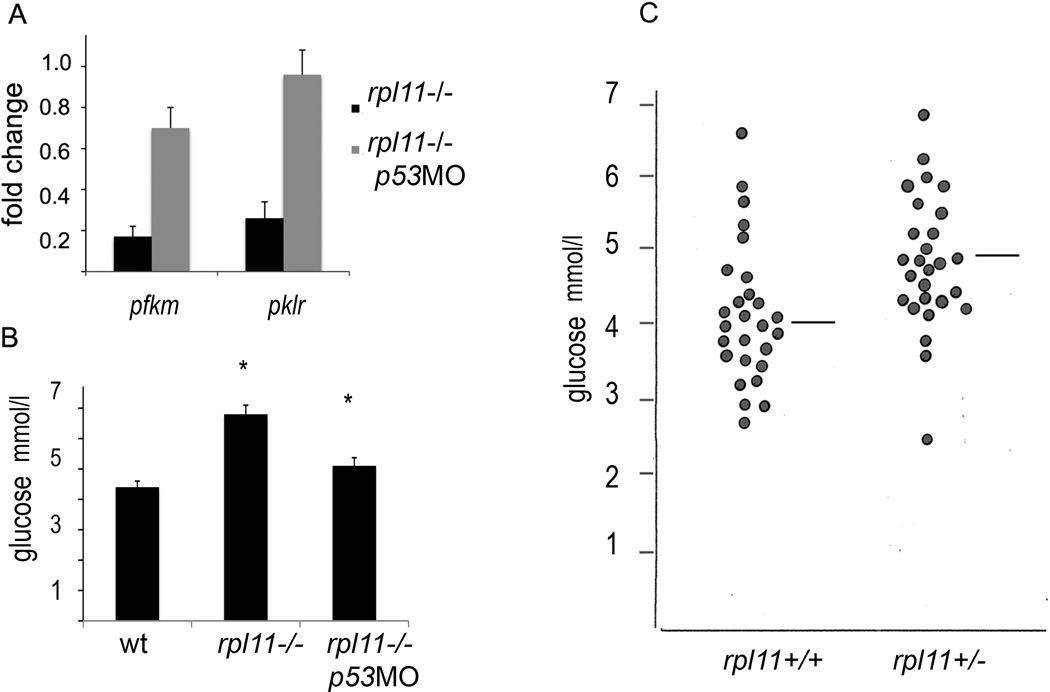Fig 4.
The rpl11 mutant had major p53-dependent changes in metabolism. (A) Expression of glycolytic enzymes was downregulated and was rescued by p53 inhibition. Adult zebrafish heterozygous for rpl11 mutations were mated and eggs were divided into two groups. One group was injected with 3 ng of p53 morpholino at one cell stage, the other group was left as a control. At 60 hpf, mutants were collected in both groups based on their morphology and RNA was prepared from 30 mutant and corresponding siblings. Fold change in expression of 6-phosphofructokinase, muscle (pfkm) and pyruvate kinase, liver and RBC (pklr) was determined by qPCR in control and p53 morpholino-treated mutants relative to their siblings. (B) The level of glucose was elevated in the rpl11 mutant and p53 inhibition led to its decrease. Control and p53 morpholino-treated rpl11 mutants were grown until 72 hpf and glucose measurement was performed in pools of 80 embryos. Shown is an average of four repeats (P < 0·001 Student’s t-test). (C) The median levels of blood glucose in adult fish were higher in rpl11 heterozygous fish in comparison to their wild-type siblings. The blood glucose was measured after 12 h of fasting. The median level for wild-type fish was 4·01 mmol/l, for mutants, 4·62 mmol/l (P < 0·005 Student’s t-test, n = 27).

